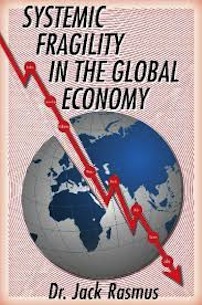Jack takes a look at the key economic developments of the past week, and then provides the first of a several part analysis this month…

Gross domestic product

The following is an excerpt from the introduction to Shadow Sovereigns: How Global Corporations are Seizing Power: We're surrounded. Everywhere you look you find masses,…

The elevation the Chinese renminbi (also known as the yuan) to the basket of global currencies making up the International Monetary Fund’s special drawing rights…

Hedge funder Martin Shkreli reminded everyone of the sky-high—and seemingly arbitrary—costs of prescription medicines in this country when he bought and immediately increased the price…

Denying women full participation in the global economy is costly.McKinsey & Co. has now calculated by just how much. Full gender equality would add 26…

It’s been so easy the past 15 years for local governments in the USA, state governments, government authorities, corporations, banks, hedge funds and the US…

Usually, we don’t stop to think about how the whole economy works together. A major reason is that we have been lacking data to see…

BANGKOK -- China continues to grow at a not too shabby 7%. And yet, because of the yuan devaluation and the sharp drop in the…

It’s entertaining to watch and to read reports in the corporate media about the current stock market decline, which over the course of the last…

In the first episode we showed how the US became an unsustainable service sector based economy from the 1970s onward when service sector employment diverged from manufacturing…

Earlier in August, Ukraine managed to avoid a technical default by paying off its $120 million eurobond coupon. The next payment, $500 million, is due to be made in September. "Creditors…

The government issued their monthly retail sales this past week and four of the biggest department store chains in the country announced their quarterly results.…
